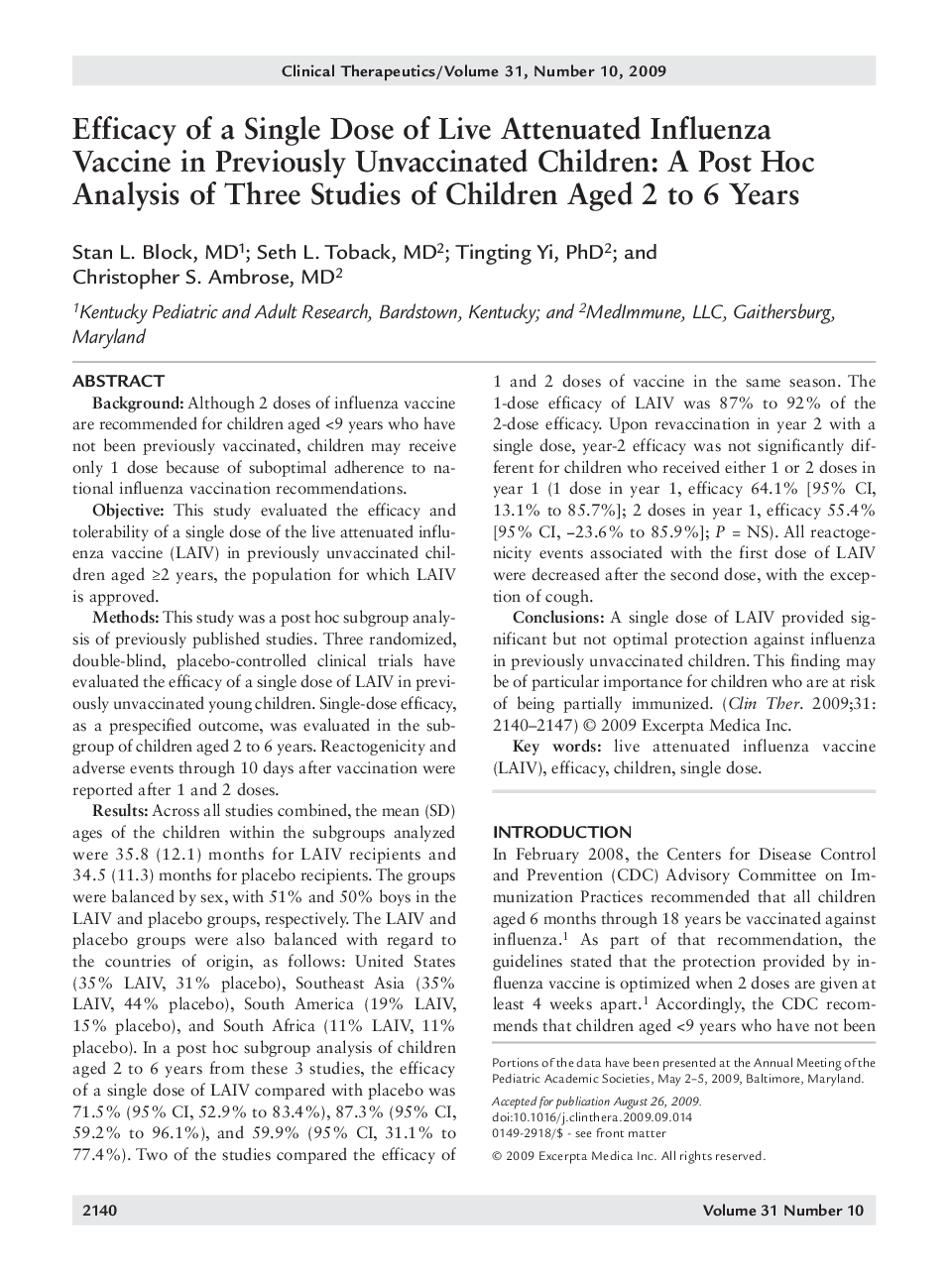| Article ID | Journal | Published Year | Pages | File Type |
|---|---|---|---|---|
| 2528296 | Clinical Therapeutics | 2009 | 8 Pages |
Background: Although 2 doses of influenza vaccine are recommended for children aged <9 years who have not been previously vaccinated, children may receive only 1 dose because of suboptimal adherence to national influenza vaccination recommendations.Objective: This study evaluated the efficacy and tolerability of a single dose of the live attenuated influenza vaccine (LAIV) in previously unvaccinated children aged ≥2 years, the population for which LAIV is approved.Methods: This study was a post hoc subgroup analysis of previously published studies. Three randomized, double-blind, placebo-controlled clinical trials have evaluated the efficacy of a single dose of LAIV in previously unvaccinated young children. Single-dose efficacy, as a prespecified outcome, was evaluated in the subgroup of children aged 2 to 6 years. Reactogenicity and adverse events through 10 days after vaccination were reported after 1 and 2 doses.Results: Across all studies combined, the mean (SD) ages of the children within the subgroups analyzed were 35.8 (12.1) months for LAIV recipients and 34.5 (11.3) months for placebo recipients. The groups were balanced by sex, with 51% and 50% boys in the LAIV and placebo groups, respectively. The LAIV and placebo groups were also balanced with regard to the countries of origin, as follows: United States (35% LAIV, 31% placebo), Southeast Asia (35% LAIV, 44% placebo), South America (19% LAIV, 15% placebo), and South Africa (11% LAIV, 11% placebo). In a post hoc subgroup analysis of children aged 2 to 6 years from these 3 studies, the efficacy of a single dose of LAIV compared with placebo was 71.5% (95% CI, 52.9% to 83.4%), 87.3% (95% CI, 59.2% to 96.1%), and 59.9% (95% CI, 31.1% to 77.4%). Two of the studies compared the efficacy of 1 and 2 doses of vaccine in the same season. The 1-dose efficacy of LAIV was 87% to 92% of the 2-dose efficacy. Upon revaccination in year 2 with a single dose, year-2 efficacy was not significantly different for children who received either 1 or 2 doses in year 1 (1 dose in year 1, efficacy 64.1% [95% CI, 13.1% to 85.7%]; 2 doses in year 1, efficacy 55.4% [95% CI, −23.6% to 85.9%]; P = NS). All reactogenicity events associated with the first dose of LAIV were decreased after the second dose, with the exception of cough.Conclusions: A single dose of LAIV provided significant but not optimal protection against influenza in previously unvaccinated children. This finding may be of particular importance for children who are at risk of being partially immunized.
